Minimal advertising orders, falling subscriptions, and fierce competition with social networks. This is far not a complete list of problems the media faces today. Therefore, without external sources of financial support, the survival of newsrooms is almost impossible.
Where to start when you have no experience in attracting grant funds? Where to look for and how to work with donor organizations? How to properly prepare and submit project applications?
Expert, journalist, and scientist Vladyslav Romanov shared his practical experience with the media during the training organized by the Dnipro Journalists’ Solidarity Center (JSC).
Vladyslav Romanov has extensive experience in cooperation with grant organizations and foundations. His portfolio contains over 15 successful projects. According to him, media professionals should remember that any donor organization manager wants to work with a trustworthy partner.
“That is why it is essential to get the first grant experience and thoroughly report for it,” noted Vladyslav Romanov. “Write, and if they invite you to a meeting – go. An important role is played by informal communication, during which acquaintances are made.”
Preparatory phase
To prepare for receiving a grant, according to Romanov, one needs to:
– register the organization. Pay attention to the place of registration. Using private addresses is a somewhat questionable thing, and experts will not accept that;
– open an account in which funds will be accumulated to pay expenses. It is also desirable to have a second active account specifically for projects. It can contain no funds in it;
– get technical property, as later, the question of where to get equipment for the implementation of the project will arise. Donors are now reluctant to give money for printers, laptops, etc.;
– make complete lists of members of your organization. This should be an extensive CV. Indicate what education the employee has, experience, and honors. The database needs to be expanded;
“When you receive a significant grant, tension can arise inside the organization,” continues Romanov. “Therefore, there must be written consent from the organization’s members to publish the CV. In addition, an organization having no material and technical base cannot interest donors. After all, the experts have a question: will such an organization be able to do the work? Step one: put documents, property, and personnel to order.”
He also advised the media to work around one mission: you can’t help low-income citizens today and animals tomorrow. “When writing an application,” continued Romanov. “It is worth following a business style. Also, before sending the documents, you need to check the presence of all signatures and, seals, necessary attachments. Do not reach the deadline, and send the application in 2-3 days,” says the expert.
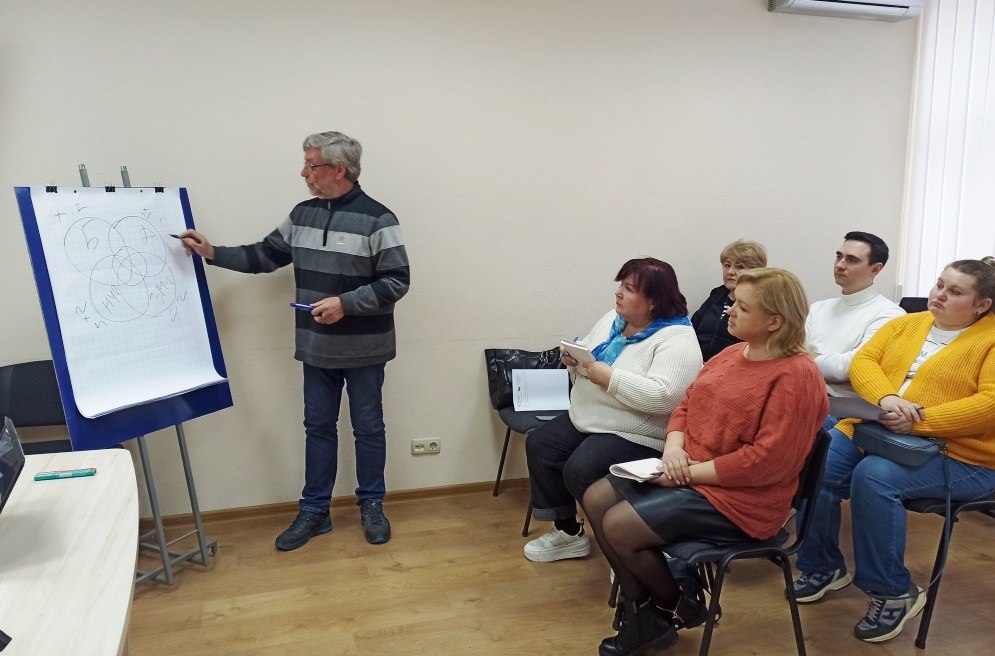
What do donors want to see in the application?
Vladyslav Romanov emphasized that donors, as a rule, support the projects aimed at change instead of assisting the current media activities.
“Attract additional financing for the implementation of the project. There are no donors who cover 100% of the costs. The standard is 2/3 of own funds,” the expert noted.
He advised increasing one’s credibility and experience through participation in projects with well-known public organizations.
“In such a case, do not shy away from working for free on the project of a well-known organization,” says the specialist.
“It is also not necessary to exaggerate the number of stages of project implementation. Three stages are enough,” Romanov emphasized and reminded that completing each stage involves serious reporting.
“If you plan to pay someone for the performance of a certain type of work, then the recipient must be registered as an individual entrepreneur,” he added.
Media workers of the Dnipropetrovsk Region have practically no experience participating in grant projects. Therefore, this topic aroused interest.
“We have never applied to grant organizations. But we got interested in this idea. This will help us to develop,” says Iryna Hrechenko, a journalist for the Behemoth website, Pavlohrad.
Nataliya Russu, a Deputy Head of the Communications Department of the Regional Center for Providing Free Secondary Legal Aid in the Dnipropetrovsk Region, has experience in grant project implementation and cooperation with non-governmental organizations. However, she admits that during the training, she received helpful advice.
“Today’s event is unique knowledge. The expert told the things that can be acquired only over years of work. This event’s conclusion is that we just need to start and do,” noted Russu.
Call the Dnipro Journalists’ Solidarity Center by dialing 096 208 6788 (Nataliya Nazarova, the Dnipro JSC coordinator). The JSC address is 8 Starokozatska Street.
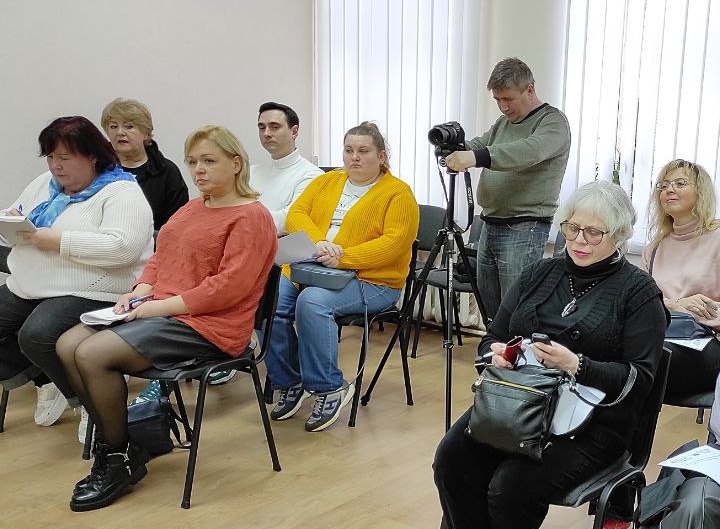
As earlier reported, the Journalists’ Solidarity Centers is an initiative of the NUJU implemented with the support of the International and European Federations of Journalists and UNESCO. The initiative is designated to help media representatives working in Ukraine during the war. The Centers operate in Kyiv, Lviv, Ivano-Frankivsk, Chernivtsi, Zaporizhzhia, and Dnipro and provide journalists with organizational, technical, legal, psychological, and other types of assistance.
UNESCO is the United Nations Educational, Scientific, and Cultural Organization. It contributes to peace and security by promoting international cooperation in education, sciences, culture, communication, and information. UNESCO promotes knowledge sharing and the free flow of ideas to accelerate mutual understanding. It is the coordinator of the UN Action Plan on the Safety of Journalists and the Issue of Impunity, which aims to create a free and safe environment for journalists and media workers, thus strengthening peace, democracy, and sustainable development worldwide. UNESCO is working closely with its partner organizations in Ukraine to provide support to journalists on the ground.
The designations employed and the presentation of material throughout this digest do not imply the expression of any opinion whatsoever on the part of UNESCO concerning the legal status of any country, territory, city, or area or its authorities or concerning the delimitation of its frontiers or boundaries.
The authors are responsible for the choice and the presentation of the facts contained in this digest and for the opinions expressed therein, which are not necessarily those of UNESCO and do not commit the organization.
Information service of Dnipro JSC

 THE NATIONAL UNION OF
JOURNALISTS OF UKRAINE
THE NATIONAL UNION OF
JOURNALISTS OF UKRAINE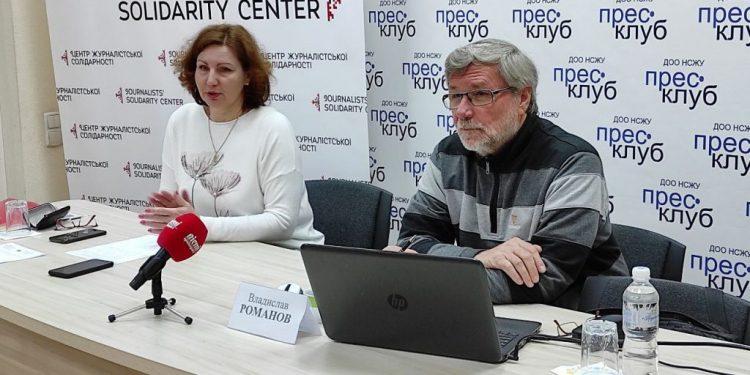
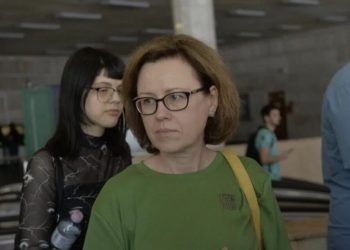
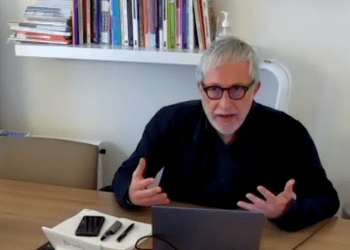
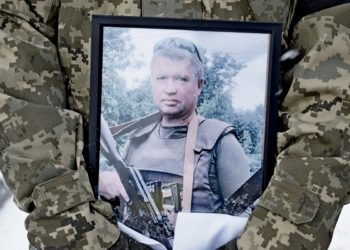













Discussion about this post